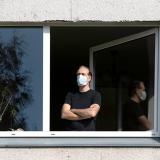EU context
2017. április 26-án a Bizottság meghirdette a szociális jogok európai pillérét tartalmazó csomagot. Ez magában foglalja a szülők és gondozók munkája és magánélete közötti egyensúly támogatására irányuló kezdeményezést. A kezdeményezés célja a nők munkaerőpiaci alulreprezentáltságának kezelése, és több új vagy a korábbiaknál kedvezőbb rendelkezést tartalmaz a szülői, apasági és gondozói szabadság tekintetében.
Az Eurofound munkája
Adatgyűjtés
Az Eurofound európai életminőség-felmérései (EQLS) összehasonlítják az országokat a munka és a magánélet összeegyeztetése, a rugalmas munkaidő-szabályozások és a minőségi gondozási szolgáltatások tekintetében. Az európai vállalati felmérések (ECS) arról szolgáltatnak adatokat, hogy a vállalkozások miért és hogyan vesznek igénybe több különböző munkaidő-szabályozást. Az európai munkakörülmény-felmérések (EWCS) a munkaidő-szervezést tekintik át uniószerte, valamint a kapcsolódó kérdéseket, ideértve a rugalmas szabályozásokat, a munkaidőre vonatkozó preferenciákat, és a munka és a magánélet közötti egyensúlyt.
Az Európai Munkakörülmények Megfigyelőközpontja (EurWORK) a munkakörülményekre és a fenntartható munkára vonatkozó adatokat biztosítja, ideértve a bérek, munkaidő és kollektív vitarendezés adatbázisát. Az Eurofound megbecsülte továbbá a nemek közötti foglalkoztatási különbségek gazdasági és társadalmi költségeit, és tájékoztatást nyújt a gondozási szolgáltatások keretében való munkahelyteremtésről.
Adatmegjelenítés
Középpontban: Foundation Focus a munka és a magánélet közötti egyensúlyt biztosító megoldásokról
2016. december 23. - A Foundation Focus ezen kiadása a munka és a magánélet közötti egyensúlyt vizsgálja, és néhány olyan tényezőt, amely segítheti vagy akadályozhatja a munkavállalókat a munka világa és a munkán kívüli élet összehangolásában. Mivel az átlagos munkával töltött idő folyamatosan csökken, felteszi a kérdést, hogy számít-e még a munka és a magánélet közötti egyensúly. Hogyan segíthet a munkaidőről szóló irányelv, és milyen szerepe van a rugalmas munkaidőre vonatkozó politikáknak? Milyen különös támogatásra van szükség a gyermekeket és felnőtteket gondozók esetében? A munka és a magánélet közötti egyensúly az élet más területeihez kapcsolódik, ideértve a nagyon jó minőségű gyermekgondozásra való igényt, foglalkozik a nemek közötti foglalkoztatási különbségekkel, és felkészíti azon idősebb munkavállalókat, akik már nem képesek teljes munkaidőben dolgozni.
A munka és a magánélet közötti egyensúly: Megoldások kialakítása mindenkinek


























